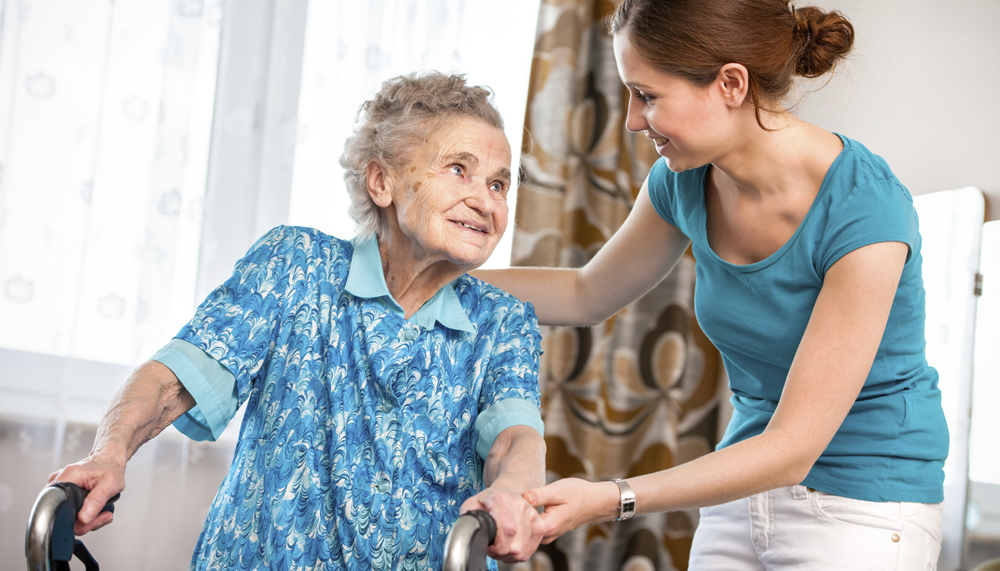Leading nursing experts want to make aged care the profession’s top priority for the year ahead.
Nursing organisations and professionals from around Australia have agreed: aged care will be one of the biggest issues on the agenda in 2014.
This has been fuelled by the government’s recent move to dump wage improvements for low-paid aged-care workers in favour of returning funds to a “general pool of resources”.
ANMF acting federal secretary Yvonne Chaperon said that if funding didn’t reach aged-care nurses and workers in previous budget allocations, it’s not going to now.
“The Workforce Supplement was the first time government funding actually reached the pockets of underpaid nurses and care workers,” Chaperon said. “[We are] concerned that if nurses and aged-care staff can’t be recruited and retained through improved wages and working conditions ... then it’s, unfortunately, older Australians primarily living in nursing homes who will suffer through poorer care.”
Acting ACN CEO Kathleen McLaughlin, suggested that the continuation of the Living Longer, Living Better reform agenda is necessary.
“Measures are needed to ensure that residential aged-care services have appropriate staffing, including professional nurses with the right skill mix at all times,” McLaughlin said. “In support of this, there must be a greater focus on attracting and retaining nurses in aged-care services through a variety of mechanisms, including expanding targeted scholarship and aged-care clinical placement programs.”
She called for an independent study this year of options for funding aged care into the future.
The growing use of healthcare assistants, most prominent within aged care, also needs to be addressed, said professor Linda Shields from James Cook University & Townsville Health Service District.
“These are people with no nursing knowledge, employed to do nursing tasks, to meet [a supposed nursing shortage],” she said. “Instead we must promote the idea of assistants in nursing … and we can insist on them having basic nursing education before they work as AINs.”
Other big issues facing the industry in 2014 include:
It’s obvious that aged care is a hot issue but it’s not the only topic on the agenda for 2014. Other areas of particular interest to the experts include:
Getting graduates jobs
It has been well reported that Australia faces a shortage of 109,000 nurses by 2025, the aged-care workforce alone has to triple by 2050.
“This is a dreadful situation,” Chaperon said. “As a nation we must start building a nursing and midwifery workforce for the future, giving graduates the training and experience they need to become the senior nurses and midwives of tomorrow.”
Shields agreed there was a need for a greater focus on workforce planning. She questions how the industry can talk about a nursing shortage, when there are new graduates that currently can’t get jobs.
“What on earth does this say for long-term planning?” she questioned. “I would suggest long-term planning by governments is about non-existent. They all plan for the length of an electoral term, as it distresses them to think that if they get voted out, someone else might take the credit for something they put in place.”
Primary healthcare
McLaughlin said that although there is support for the general practice model as an essential component of Australia’s healthcare architecture, not all communities can easily access or afford this type of care.
“A health system truly centred on primary healthcare must provide access to the range of health professionals in the community, including nurses,” she added. “ACN recommends options for developing and expanding innovative community and primary healthcare nursing service models to improve access for the community overall and particularly for under-served populations.”
Public perception of nurses
“As a profession, we need to educate the public about what it is nurses do, that our work is very complex, based on sciences and evidence,” Shields said. “In fact, we need to do much more promotion of the idea that so-called ‘basic care’ is anything but; when a nurse puts someone on a bedpan or gives them a shower, etc, they are [performing] assessment, communication, using their clinical reasoning skills and applying evidence.”
Shields also pointed out that in the last Queen’s Birthday Honours list there were more than 60 doctors and just three nurses. She said that needs to change.
Do you have an idea for a story?Email [email protected]
 Aged Care Insite Australia's number one aged care news source
Aged Care Insite Australia's number one aged care news source

